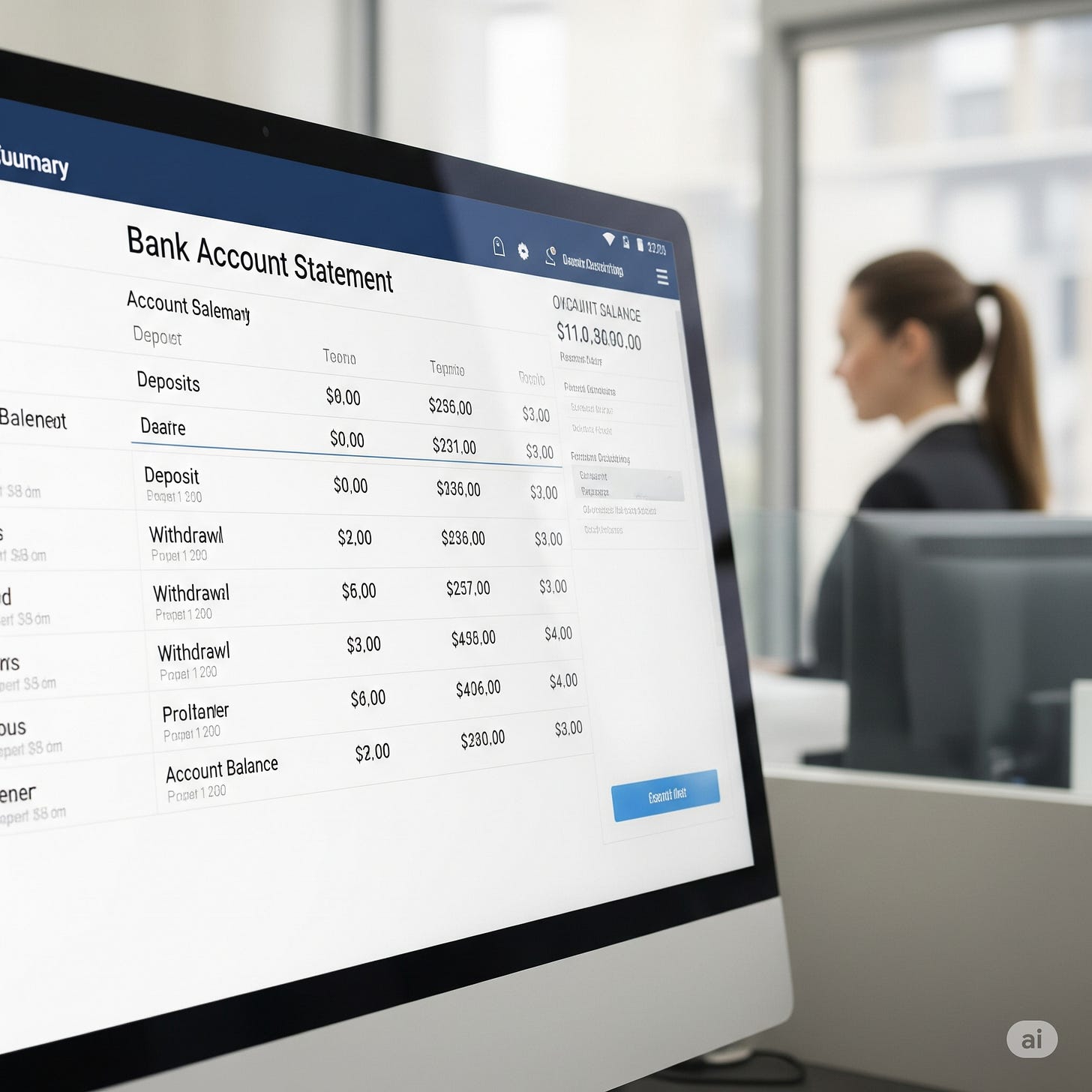You should never put your name in a bank account
here's why
Happy Tuesday, guys!
It’s that time of the week when your to-do list is already yelling at you, your coffee’s gone cold, and you're thinking: “Am I really in control of my money?”
Well... maybe not.
Today we’re talking about why having your bank account in your personal name could be a legal disaster waiting to happen, and why people around the world are already way ahead of the game when it comes to asset protection.
So, let’s get into it…
📌 What’s the big deal about a name on a bank account?
I mean, we all have one with our own name, right?
On paper, it seems harmless, yes. You open an account in your own name, stash your earnings, and suddenly you’re a responsible adult.
But here’s where it gets complicated:
When the account is in your name, your money is legally yours. Which means in court? It’s fair game.
Let’s say you’re a doctor in California, where medical malpractice suits are so common that physicians pay tens of thousands a year in insurance just to breathe easy.
Or you're a startup founder in Texas, and someone sues your company? If you co-mingled personal and business funds, guess what your personal savings might be frozen or seized.
Let’s understand this in detail:
In the United States, if you lose a lawsuit, your personal bank account can be frozen through a court judgment, sometimes within days. Debt collectors, child support enforcement, and even unpaid student loans can legally dip into your personal funds.
In Canada, doctors and lawyers often set up Professional Corporations and hold earnings there rather than in their personal accounts to protect against liability. It’s not foolproof, but it adds a layer of separation that courts respect.
In the United Kingdom, trusts are a common way for families to protect generational wealth. British law often respects the legal “distance” created between personal ownership and a trust, especially in inheritance planning.
Singapore is known for strong financial regulations; many wealthy individuals hold their assets in family offices and irrevocable trusts. These accounts can’t be accessed by creditors, even if the individual goes bankrupt.
And in India, if you default on a loan, banks can access savings in your name under the SARFAESI Act. But if your money is held in a trust or registered business account? That’s a harder nut to crack.
📌 So, what should you do instead?
Get trusts.
Let’s say you’re an athlete earning millions. If you keep all your money in a personal account, a single lawsuit could wipe it clean.
But if your earnings go into a trust or LLC instead?
The money isn’t technically “yours,” it’s owned by the trust.
You’re just a beneficiary, not the account holder.
Creditors? They’ll have to go through complex legal procedures to touch it.
Even better? Trust-held assets don’t count the same way in financial aid calculations for college or government assistance. That’s why wealthy families often shift funds into trusts long before their kids apply for university.
📌 But you’ve got to do it right
A trust is only as strong as its legal setup. If it’s sloppily written, or you still treat the money like it’s personally yours, courts might just get access to it easily.
So if you're serious about protecting your money from lawsuits, debts, divorce, and government clawbacks.
Then it might be time to talk to a legal expert about building a financial firewall around your savings.
That’s it for today. If you found this edition interesting and entertaining, please drop a like and follow us for more!
See ya👋



